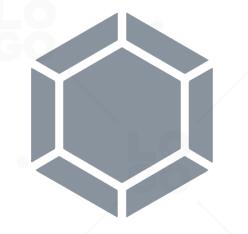Carbon brushes are essential components used in various electrical machines and equipment to facilitate the transfer of electrical current between stationary and rotating parts. Depending on the type of electrical system, there are two main types of carbon brushes: AC (Alternating Current) and DC (Direct Current). In this article, we will explore the key differences between AC and DC carbon brushes, including their construction, functionality, and applications. Let’s dive into the world of electrical currents and carbon brushes to understand their distinctions.
- Construction and Composition:
AC Carbon Brushes:
AC carbon brushes are usually constructed with a higher content of copper or silver, along with a softer grade of carbon material. This composition allows for better heat dissipation and helps withstand the rapid changes in current direction that occur in AC systems. The softer carbon material also aids in reducing wear and tear during the frequent reversals of current flow.
DC Carbon Brushes:
DC carbon brushes are typically composed of a higher percentage of harder carbon material, providing greater durability and wear resistance. Since the current flow in DC systems remains constant in one direction, these brushes can be designed with a more rigid structure that can withstand the sustained current and friction.
- Current Direction:
AC Carbon Brushes:
In AC systems, the current constantly changes its direction, flowing back and forth in a sinusoidal waveform. The quick reversals of current direction require AC carbon brushes to handle the resulting increased friction and potential sparking. The softer carbon material used in AC brushes helps reduce the wear caused by these rapid changes in current flow direction.
DC Carbon Brushes:
DC systems maintain a constant current flow in one direction. The uninterrupted flow of current in a single direction allows for the use of harder carbon materials in DC carbon brushes. These brushes can withstand the sustained current and friction without significant wear or damage.
- Wear and Maintenance:
AC Carbon Brushes:
Due to the softer composition and frequent changes in current direction, AC carbon brushes tend to wear down more quickly compared to DC brushes. Regular maintenance, including monitoring brush wear and timely replacement, is crucial to ensure optimal performance and prevent damage to the electrical system.
DC Carbon Brushes:
With their harder carbon composition and unidirectional current flow, DC carbon brushes generally have a longer lifespan and require less frequent maintenance. However, monitoring brush wear is still important to prevent any potential issues and ensure efficient operation.
- Applications:
AC Carbon Brushes:
AC carbon brushes are primarily used in AC motors, transformers, generators, and other electrical machines that operate on alternating current. The design and composition of AC brushes allow them to handle the rapid changes in current direction, ensuring reliable electrical contact and minimizing wear.
DC Carbon Brushes:
DC carbon brushes find their applications in DC motors, generators, and various electronic devices that operate on direct current. The rigid structure and composition of DC brushes enable them to withstand constant current flow in one direction, providing stable and reliable electrical contact.
Conclusion:
In summary, AC and DC carbon brushes differ in their construction, composition, functionality, and applications. AC carbon brushes are designed to handle the frequent changes in current direction, utilizing a softer carbon composition to reduce wear and tear. DC carbon brushes, on the other hand, are engineered for sustained unidirectional current flow, employing a harder carbon material for durability and longevity. Understanding the differences between AC and DC carbon brushes is vital for selecting the appropriate brush type for specific electrical systems, ensuring optimal performance and reliability. Whether it’s an AC motor or a DC generator, the right choice of carbon brush contributes to the efficient operation of electrical machinery and equipment.
